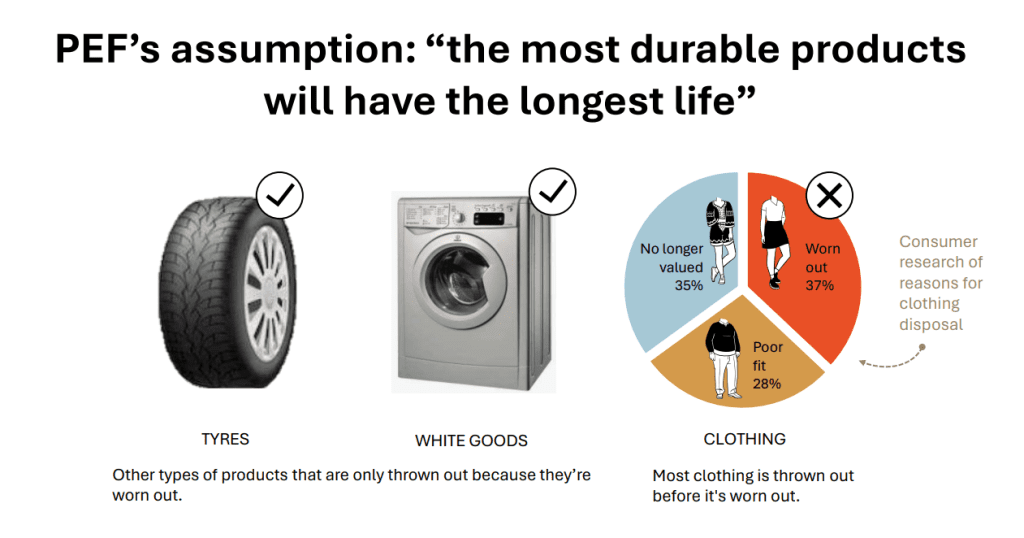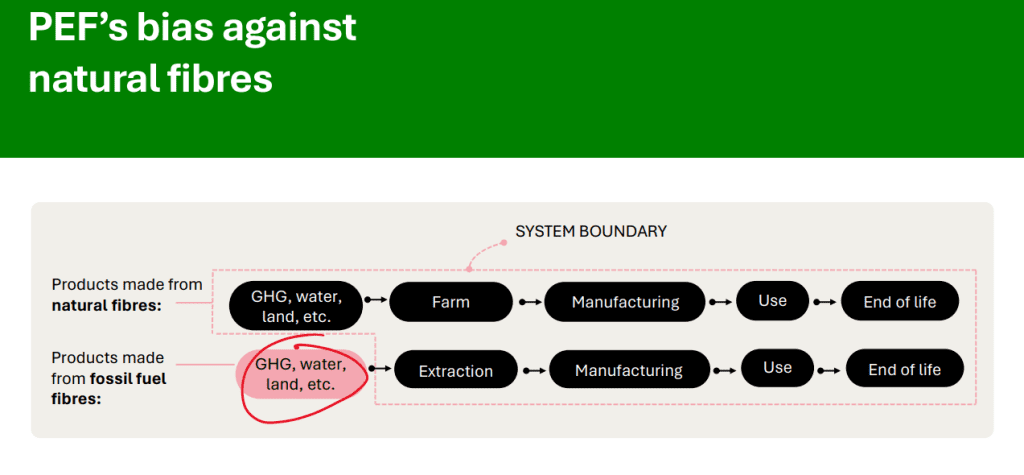AUSTRALIAN wool growers are being called on to make last-minute submissions to consultation on proposed European product environment footprint labelling rules for apparel and footwear that would favour synthetic over woollen garments.
The second public consultation on the Product Environmental Footprint Category Rules for apparel and footwear ends on Sunday 28 April and Australian Wool Innovation has put out a call for more wool industry feedback.
AWI on Wednesday emailed members of its grower consultation groups Wednesday that said about 40 ‘wool’ responses have made to the PEF consultation, whereas hundreds are need.
AWI’s Woolgrower Consultation Group and Woolgrower Industry Consultation Panel were told hundreds of growers have tried to submit responses to the PEF consultation, but most have failed to get through the EC’s bureaucratic process.
“So we’re now recommending they email their responses to one of the people below who have agreed to upload on behalf of the European Commission.
“Should you have troubles uploading your feedback, please send it to [email protected] or [email protected] and it will be uploaded on your behalf.”

Concerned growers can also scan the QR code on this image to enter the PEF consultation site.
PEF methodology ‘biased against wool’ – AWI

AWI-The Woolmark Company global sustainability manager Emma Gittoes Bunting
The wool industry, led by the natural fibres Make The Label Count campaign, and supported by Australian Wool Innovation and the International Wool Textile Organisation has been working to ensure sustainability claims on textiles in the European Union are fair and credible.
However, the proposed PEF methodology, counterintuitively, scores apparel and footwear products made from wool and other natural fibres poorly compared to synthetic fibre products.
The MTLC campaign believes the PEF methodology is narrowly drawn and fails to adequately take account of key sustainability considerations for the fashion industry, such as the benefits of using natural, renewable and biodegradable raw materials. PEF is based on life-cycle assessment (LCA) principles that do not account for the formation of the oil and natural gas from that fossil fuel fibres are made, whereas all the impacts of forming natural fibres are accounted for in PEF – resulting in an inequitable comparison. The campaign believes the PEF rules risk misleading consumers about the impacts of apparel and footwear products, and ultimately undermining the EC’s sustainability objectives.
AWI/The Woolmark Company global sustainability manager, Emma Gittoes Bunting put the case for greater PEF feedback from the wool industry at the IWTO Congress in Adelaide last week.

In an AWI Facebook post this week she said AWI needed growers’ help to advocate for wool.
“The EU is looking to crackdown on greenwashing, but there are huge issues with how they are planning to do it.”
Ms Gittoes Bunting said the PEF tool aims to provide an environmental impact assessment on fashion and textile products to give a sustainability scorecard on retail labels.
“However, PEF has limitations, it doesn’t account for microplastic pollution or plastic waste and key impacts of synthetic fibres.
“It doesn’t fully account for circularity, which is key to wool’s sustainability story,” she said.
“The result is that it is biased against wool.”

Ms Gittoes Bunting called on growers to provide feedback to the PEF consultation to ensure PEF doesn’t disadvantage wool.
“Consultation closes on the 28th of April, act now to advocate for our fibre.”
AWI chief executive officer John Roberts said The Make The Label Count campaign is one of the key ways Australian wool growers are having their interests served in Europe.
“Levy payers through AWI are working with other natural fibres against the untruths being told by fast fashion fossil fuel fibres.
“AWI research on the benefits of wool as a natural and biodegradable fibre are now being considered in proposed European Union and French government laws designed to show the environmental footprint of clothing,” he said.
“It would be wrong and incredibly damaging to Australian woolgrowers if the proposed laws had wool as worse for the environment than a synthetic fossil fuel fibre.
“That’s why we want as many growers as possible to add their voice to the campaign,” he said.
More details can be found at makethelaberlcount.org.
Things are now incredibly urgent – Bill Walker

Sheep classer Bill Walker
South Australian-based classer Bill Walker distributed an email this week urging an urgent grower response after being contacted by concerned SA grower Michelle Nuske of Hillseas Station, Elliston, who attended the IWTO Congress in Adelaide.
Mr Walker said Ms Nuske was horrified that some critical information to the wool industry was seemingly casually delivered and even more alarmingly, not taken seriously by many who were in attendance.
“According to the EU, our sensational natural product/garment/fibre runs a sad last yet fossil fuel-based fibre such as nylon & polyester are promoted as the most sustainable!
“Hence a proposal suggests that theoretically yet potentially, our naturally produced luxury/workwear range of garment will host a red (danger) swing tag in apparel stores suggesting a product of low sustainability whilst fossil fuel based gear will show off a golden swing tag suggesting elite status! (Methane attack in that general direction.),” Mr Walker wrote.
“My extremely untidy thought is that the excellent AWI promotion of natural Merino fibre as opposed to oil-based artificial equivalents (remember the endless pool with humans swimming in oil) got under the skin of synthetic producers of which some EU members host a vested interest! (Snapshot: AWEX/Skin Traction)”
He said AWI via ‘Make The Label Count’ campaign has researched the EU findings to be pathetically biased with no concrete evidence to suggest exactly why Merino fibre has copped the wrath of the organisation yet synthetic fibre to be headlining the bill.
“Considering the EU deadline of 28th April (yep this Sunday!) and I believe unfortunately AWI are late enough with this response, things are now incredibly urgent,” he concluded.
In her email, Ms Nuske said all clothing and footwear in the EU will be sold with a PEF (Product Environmental Footprint) label.
“The EU Regulations as it stands today suggest synthetic clothing will be a better environmental purchase based on the EU regulates as it stands compared to our naturally grown, biodegradable, organic Merino fibre!
“This EU labelling will bring our wool industry to it’s knees if we don’t stop the proposed regulations. CLOTHES MADE FROM AUSSIE WOOL WILL BE LEFT HANGING ON THE SHOP SHELF because the tag indicates it is bad for the environment,” she wrote.
“Consumers will potentially buy the better environmental option tag attached to synthetic clothes!
“This will cause a lower demand for our wool, flowing to lower prices at market for growers.”

We are wool growers and AWI members, but we did not receive any email from AWI about this. Luckily Bill Walker sent us an email and we have been able to send in our feedback. Is AWI really doing all it can?
My Merino production is ‘clean and green’.